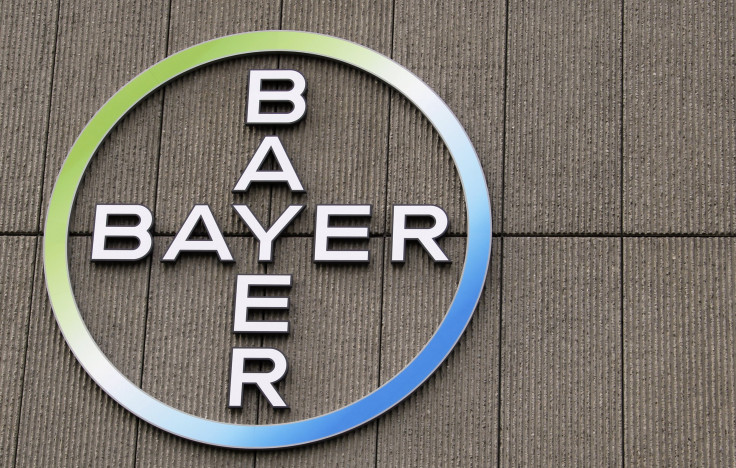21st Century Cures: Safety Concerns About Bayer’s Essure Female Sterility Implant Heighten Just Before Senate Weighs Proposal To Hasten Medical Device Approvals

Thousands of women who received an implant to render themselves sterile have filed complaints about debilitating stomach pain and severe bleeding with the U.S. Food and Drug Administration since the device's approval in 2002. Concern among regulators and patient advocates about the safety of the product, called Essure, is reaching a turning point as the U.S. Senate prepares to consider legislation this fall that would hasten the process by which the FDA reviews and certifies medical devices.
On Thursday, an FDA panel questioned the agency's prudence in reviewing safety data for the Essure device after hearing testimony from patients and experts who complained of persistent abdominal discomfort, allergic reactions and botched insertions. Essure, which was developed by a subsidiary of Bayer, is a small metallic coil that is placed in the fallopian tubes. Its presence causes fibrous scar tissue to develop around it, forming a physical barrier to prevent sperm from reaching eggs.
The device offers women a nonsurgical permanent form of birth control if they do not wish to undergo surgery for a tubal ligation. The FDA hastened the approval of Essure through an "Investigational Device Exemption" because it was the first device to provide a nonsurgical option for sterilization. Under that exemption, the agency permitted Bayer to submit data from a clinical trial that was not randomized or controlled for review. The FDA customarily grants priority review and accelerated approval for “breakthrough” treatments that serve unmet medical needs. This year, the agency published new draft guidance for such exemptions and released data showing approvals happened 341 days faster in 2014 than in 2011 on average and that most priority devices are now approved in abbreviated trials.
“You can empathize with people who want things faster, particularly when it's a serious or life-threatening condition or there's unmet medical need,” Dr. Aaron Kesselheim, a primary care physician and expert on the drug approval process at Harvard University’s Brigham and Women’s Hospital in Boston, says. “It's not clear to me in this case that either of those features exist. There are plenty of other birth control options.”
How Safe Is The Fast Lane?
Last spring, medical device manufacturers pushed hard to persuade the House to pass the 21st Century Cures Act, legislation that in part aims to expedite the process by which the FDA reviews and approves medical devices. The legislation makes two key changes that could help companies earn faster approval at a lower cost.
First, it permits companies seeking approval for high-risk devices such as pacemakers and artificial joints to submit case histories or peer-reviewed studies rather than conduct large and expensive clinical trials to verify the safety and efficacy of their product. Second, it allows device manufacturers to pay another company to review and approve changes it makes to a device after it is already on the market.
Supporters say the legislation will spur innovation by reducing the cost of creating new devices, and grant patients earlier access to important treatments. They also point to the fact that the bill would bring a five-year $8.75 billion boost in research funding for the National Institutes of Health that has broad support, saying this funding is critical to the future strength of the medical device and pharmaceutical industries.
"It's going to provide a smoother process for getting these drugs into the hands of patients but I think it's going to do that without sacrificing safety for patients and families," Jessica Crawford, president of a trade group called MedTech that represents medical technology companies in New York, says. "When you look at the FDA, it is the gold standard for drug approval and device safety across the world."
Stephen Ubl, president of a nationwide organization of medical device manufacturers called AdvaMed, commended the House shortly after the bill’s passage. AdvaMed declined to comment for this story.
“The bill includes a number of proposals designed to strengthen the innovation ecosystem and support the development of life-saving, life-enhancing medical technology,” Ubl said in a statement. ”This includes key improvements to FDA’s premarket program for medical devices – most significantly the establishment of an expedited pathway for breakthrough, innovative technologies – which will increase the efficiency, predictability and transparency of the agency’s review process and improve patient access to the best in medical progress.”
'A Collection Of Anecdotes Is Not Data'
But Kesselheim is concerned that both measures also will compromise patient safety and lead to more concerns like those that have recently emerged about Essure. He says case histories and studies do not provide sufficient evidence for the FDA to evaluate the adequacy of a new device. Kesselheim and other critics also argue that letting a company pay another company to review changes to its product presents a clear conflict of interest.
“If you pull together 100 cases, that doesn't make it scientifically valid. A collection of anecdotes is not data,” he says. “These are characteristics of high-quality trials -- controls, blinding, randomization. Case studies have none of those characteristics.”
Crawford is confident in the FDA's commitment to maintain a rigorous review process and says the Cures Act has far-reaching benefits, from producing new devices to generating jobs in states such as New York that are home to medical device manufacturers and pharmaceutical companies.
"I think at the end of the day, this is going to support more research and development for companies," she says. "This has been carefully looked at and examined because we know how important drugs and devices are to people's lives."
In the case of Essure, the FDA panel requested that Bayer and the agency conduct new studies about the product’s safety – data that Richard Chappell, a panel member and biostatistician from the University of Wisconsin, said should have been available more than a dozen years ago.
© Copyright IBTimes 2024. All rights reserved.






















